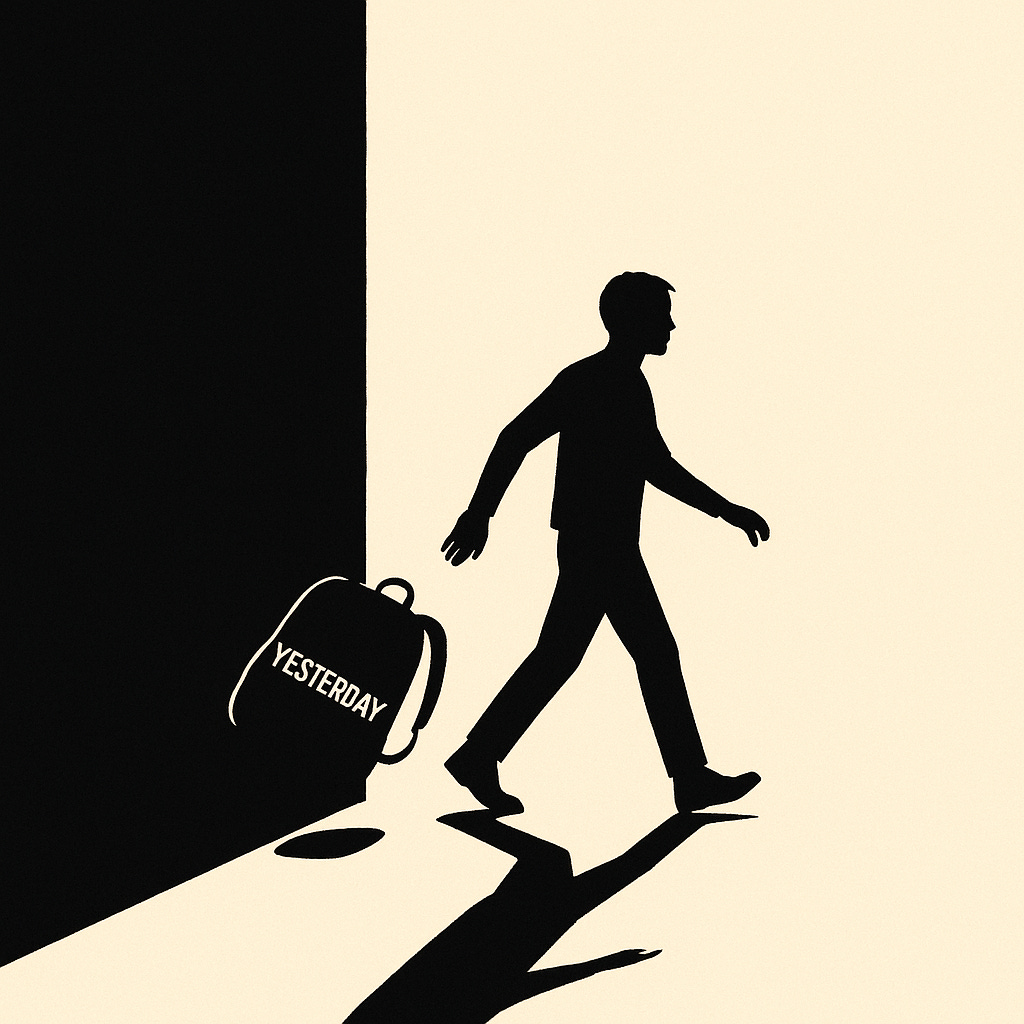Concept Clinic: Nietzsche's "Active Forgetting"
Insights from a thinker not typically associated with "serenity"
One of AA’s more famous taglines is “One day at a time”, which counsels the recovering alcoholic to focus their energies on the present moment and only worry themselves with doing the next right thing. People generally come in to AA soaked with regrets about the past and anxieties about the future, for very understandable reasons, but AA challenges its members to acknowledge those reasons and live in the present anyway.
This practical wisdom from the recovery world finds a surprising and powerful philosophical ally in a thinker not usually associated with serenity: Friedrich Nietzsche. In his work, he identifies a specific mental faculty crucial for a healthy life, that of active forgetting.
In On the Genealogy of Morals and Use and Abuse of History for Life, Nietzsche distinguishes two kinds of forgetting:
Passive forgetting, the dull erosion of time, which causes memories to fade and learning to fade with them.
Active forgetting, a conscious release, which frees up energy for fresh acts of creation.
Passive forgetting is the decay of unexamined experience, where life flies by without leaving much of a mark on you. Active forgetting, by contrast, is an art. It is the practice of loosening yesterday’s grip on us so that today can freely experiment and play. Nietzsche calls it “a doorkeeper, a preserver of psychic order” - without it the self is flooded by the past’s debris and becomes incapable of decisive action.
To be in recovery is to feel yesterday’s grip very tightly indeed. Newcomers may feel regrets about last night’s bender, anxieties about next week’s paycheck, and shame about a decade of wreckage, all of the above competing for attention at the same time. The injunction to stay sober today functions like Nietzsche’s doorkeeper: it shuts the clamoring archive outside the threshold, not by denying its existence but by denying it jurisdiction over today’s choices.
Notice what this is not: it is not self‑deception, repression, or the willful erasure of history. AA’s Step 4 inventory and Step 5 confession make ruthless, publicly-accountable moral memory a non‑negotiable. But once the inventory is written and shared they do not have to be re‑litigated each and every day.
Because active forgetting is willed rather than received, it is paradoxically a mode of memory. By fencing off yesterday’s chaos we can protect the lessons of that chaos. The inventories and conversations that AA makes happen permit us to transform our past pain into insights and empathetic connections, insights and connections that are most present when the pain of the past is released.
There’s a lot of darkness and storminess in Nietzsche’s writing, but all of the dramatic rhetoric about world‑historical conquest is bound up in a smaller-scale vision of personal creativity and self‑overcoming. I think that vision is tremendously resonant with AA’s promises of becoming ‘happy, joyous, and free’.
Takeaway: Active forgetting is not amnesia, it is custodial imagination. It curates what the past may say to the present, permitting only that which nourishes action to be carried forward. Yesterday illuminates, tomorrow inspires, but the next 24 hours are the only arena that matters.
Practice prompt: Write one sentence naming the single fear or regret most likely to hijack your day.
Beneath it, write down one small, concrete action you can take today to address it.
(e.g., "My fear is financial ruin." Action: "Spend 15 minutes outlining a budget," or "My regret is how I spoke to my friend." Action: "Draft a one-sentence text to apologize.")
Now, practice active forgetting. Fold up the paper and put it away. Your job is not to solve the entire problem or to erase the past, your only job is to perform that one small action today. Actively forget the overwhelming weight of the problem, and focus only on the lightness of the single task.
Grant the past and future no jurisdiction over this present moment. Just do the next right thing.


